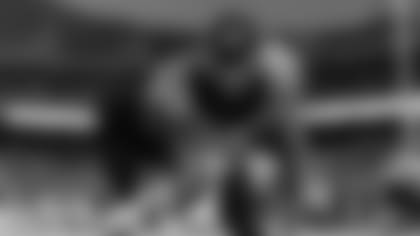They play the AFC championship game Sunday in Kansas City and it marks the 30th anniversary of the one they staged in the Riverfront Stadium din when the Bengals blew apart the AFC's No. 1 defense for the second time in 42 days during a 21-10 victory over Buffalo that put them in the Super Bowl for the second time in seven years.
In the latest edition of the Hobson's Choice podcast, former Bengals center Bruce Kozerski, the man in the middle of that sweet and strange day, runs through the emotions of a game that served as the signature performance of one of the decade's greatest offensive lines. Before the Bengals put up 175 yards on the ground, the NFL backed off its shocking pre-game decision to penalize them for using head coach Sam Wyche's No Huddle scheme that put them at the top of the league rankings.
Kozerski, a championship head coach at Holy Cross High School in Covington, Ky., was not only drafted by Paul Brown in 1984, he received the Paul Brown Coaching Award a generation later. A few podcast highlights:
On that day's crowd: "Nobody left … We got the ball back with (8:07) left in the game and never gave them the ball back. This is what we could do. We had the ability to run the ball. And run the ball when they knew we were going to run the ball. That's what made that team successful. So they never got the ball back. Everybody in the stands was standing the entre time. It was phenomenal. Forty-five minutes after the game they were still in the stadium. You shake hands with your opponents. You hustle into the locker room. Sam said his words of advice. We celebrated a little bit. The crowd was still out there. Holy mackerel. Got to go back out there and salute the crowd that had waited so long for that to happen. We were excited for them as well."
On the Bengals O-line: "That whole playoffs was dominated by the offensive line. Against Seattle the week before we ran for (254) yards. Then we turned around against Buffalo, knowing what we were going to do, knowing who we were, knowing what we ran because we just played them (six) weeks before. With no surprises they still couldn't stop us."
On the NFL trying to outlaw the No Huddle: "It was a pride issue. They're trying to take away what we do and they're not giving us credit for being who we are. That's pretty much the heart and soul of what (Wyche) said. They're challenging how good we were instead of letting us play within the rules we played with. They were trying changing the rules because the league couldn't catch up with us. Well, the league couldn't catch up with Paul Brown for years … As a sense of pride we just went out and eliminated the possibility."
On what he took from Wyche for his own coaching career: "The one thing I learned from Sam is when you're on the field … intensity matters. Emotion matters. Off the field, you're not intense. You're personable. You have to get to know the players. He could tell you a joke in the hallway and chew you out in the meeting room two minutes later. Because one was a relationship, the other was a job. If you can't do the job he has to find someone that can. He was as good as there is relating to people. Both as a friend and being a boss and that's why you loved playing for the guy. He could separate the two. When he said there's golf to be played and tennis to be served (after a loss), what a great outlook on life. The year I retired I had business cards printed up with the Bengals helmet with Sam's saying. There's golf to be played and tennis to be served."












